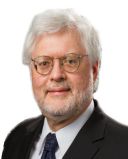Sleep
First Responders and Sleep
Lack of sleep can prove deadly for first responders.
Posted September 29, 2019
I often have the opportunity to work with first responders, such as firefighters, police officers, and emergency medical personnel. These are the individuals who are called upon to respond immediately when there are emergencies and disasters. I work with active military less often but do work with those who are experiencing the long-lasting effects of their previous service.
Society is indebted to all of these individuals and the protection and help they provide. People I have known who have lived in countries without the availability of emergency services attest to the significant improvement in quality and length of life we experience because of them. In the U.S., we have both the organizational structures and the trained and dedicated individuals to provide essential services for us all.
At the same time, societal resources are, for one reason or another, limited, and first responders and military personnel are often called upon to work repeated, long, and stressful shifts, frequently at odd hours and with limited support. The impact this has on sleep and the ability to recover from and cope with stress—and to make split-second decisions—is significant.
Today the United States maintains far-reaching military bases all over the planet. While there may be relatively little coverage of our wars today, as compared with that during the Vietnam War or during the early days of the Iraq War, we do have an often vague sense that our soldiers are still serving and dying in distant places. The burden of these efforts falls on a small percentage of the families in America, and are not equally shared in our society.
Whether these wars are helping improve our world or not is a question beyond the scope of this post. The fact is that our troops are facing difficult and challenging situations that often stretch the limits of human endurance. A concern that both military planners and soldiers have to face is the impact of sleep, or the lack thereof, on the functioning of people in prolonged and dangerous circumstances.
Before the modern era, warfare was often limited by environmental demands. It was difficult or impossible to fight during the night or in extremely inhospitable terrain, such as a jagged mountain range or during a monsoon or extremely cold weather. Operations were also hampered by the practical limitations of the human body.
In the era before drones and robots, fighting could only be carried out by people, perhaps assisted by their unfortunate animal companions, such as horses or donkeys. Hannibal remains one of the most highly regarded military leaders because of his daring and nearly impossible crossing of the Alps with elephants to attack the Romans in Italy itself. This was a feat of unbelievable endurance and courage and few military operations have ever equaled it.
With the emergence of modern, total, industrial war and the smaller-scale, asymmetric wars that we are involved in today, incredible burdens have been placed on combatants and civilians alike. Campaigns or battles can now last months or years and test the limits of human endurance. In Vietnam, there were elements of total war, such as carpet bombing, used by the United States, and aspects of asymmetric warfare given the use of guerrilla tactics by North Vietnam and the Viet Cong.
The wars that we are currently engaged in, such as those in Afghanistan and Iraq, are mostly asymmetric in nature. This means that soldiers are often uncertain about who the enemy is or how they will be attacked. Long missions in hostile terrain with inhospitable conditions, such as being in the desert, certainly make it difficult to cope with stress and to get adequate sleep and rest.
When not in combat situations, today’s military may be involved in humanitarian missions to help following natural disasters such as wildfires and hurricanes. These deployments also involve long hours under difficult environmental conditions, even if there is not an enemy actively seeking to cause harm. Active military personnel are thus often dealing with long periods of continuous vigilance and stressful situations in which they must make split-second, life-or-death decisions. Getting adequate sleep so that their mental and physical capacities are maximized is therefore extremely challenging.
This is something the military is aware of and has researched (see Vila, Samuels, & Wesenten, 2017). In the years since 2003, surveys conducted by the Army of deployed active service personnel have found that soldiers reported that they needed an average of 6.4 hours of sleep to function effectively, but reported only getting about 5.6 hours of sleep. The most common causes of poor sleep were nighttime duties and poor sleep environment.
This poor sleep results in reported excessive sleepiness and falling asleep during activities such as being in a convoy, attending a briefing, and doing guard duty. In most years that the survey was conducted, over 50 percent of active-duty soldiers reported a significant concern about not getting enough sleep.
In the 2013 survey, for example, it was found that 50 percent of soldiers reported falling asleep while on a convoy, while it was 20 percent for guard duty or a briefing. Of significant concern, research done by the Navy found that sleep difficulties, such as getting less than 6 hours of sleep, having difficulty falling asleep, and difficulty staying asleep, all increased the probability of having symptoms of generalized anxiety, major depressive disorder, and PTSD. Use of sleeping medication was reported by 6.4 percent to 11.4 percent of active-duty soldiers surveyed by the Army.
Firefighters, police, and other first responders also have to cope with problems associated with poor sleep. For police, there is often a need to respond to situations with a balance between restraint and aggression. Mistakes in the line of duty, as with military personnel, can have life or death consequences for the officers and the public.
The most common effect of insufficient sleep is slowed response time. Under conditions of stress and danger, the ability to make quick and accurate assessments of the situation and determine an appropriate course of action is reduced when the officer has had insufficient sleep. This increases the likelihood of injury or death for the officer and the public. Sleep considerations also apply to emergency medical personnel and firefighters, but the potential use of weapons and encountering hostile resistance further increases the risk in the case of police work.
It should be pointed out that the sources of poor sleep among first responders are numerous. For one, first responders often work long shifts of up to 24 hours and at odd times, such as overnight. Second, multiple shifts may be worked, and the use of overtime to increase income is common among firefighters and police officers. In addition, many of these individuals supplement income with part-time jobs, either related to their primary work, such as police officers working as security guards, or in other fields entirely, such as a firefighter doing side jobs as a carpenter.
Third, first responders have lives in the civilian world with social responsibilities to their families and friends. Fourth, the use of significant amounts of caffeine, as with coffee or energy drinks, may make it difficult to sleep after getting home from work. Fifth, sleeping during the daylight hours after overnight shifts may be difficult due to problems with the individual’s circadian rhythms or due to noise and light. Finally, first responders are regularly faced with distressing psychological and emotional material, such as seeing people or colleagues seriously injured or even killed. This kind of mental stress can certainly make it difficult to relax and fall asleep.
Much of what I do is to work with individuals to maximize their sleep time and ability to sleep by effective scheduling and by creating environments conducive to sleep. For example, a firefighter may need to carefully schedule non-work activities and social responsibilities in such a way as to provide adequate time for sleep. The sleep environment must also be made adequate with methods such as using light-blocking shades to prevent stray light from interfering with sleep and to use earplugs, sound-canceling headphones, and white noise machines to mask background noise. Then the individual has more of an opportunity to relax, fall asleep, and not be interrupted.
It can be difficult for all concerned to miss a child’s piano recital or soccer game so that finding ways of negotiating with family and friends around the issue of needing adequate time for sleep is critically important. Reducing excessive use of caffeine and using a smaller amount more effectively to promote and maintain alertness on the job can help with getting more and better sleep, as well.

While these techniques can be tailored to each individual’s situation and needs, they need to be buttressed by effective support from the public, management, and labor, to maximize the effectiveness of our first responders so that they can best help us. This means management needs to address issues such as long hours of service, limited time for sleep, and the demands of the work situation.
A balance must be found between the needs of society and the needs of responders. To date, no perfect shift work system has been determined, and so labor and management need to work together to best fit the unique needs of the local community and its first responders. Sleep medicine professionals should be included in developing these schedules so that best scientific practices can be considered and applied.
Improved sleep for first responders will enhance the lives of these vital professionals, while also reducing the expenses experienced by communities. When we take care of the people who take care of us, everybody wins.
References
Vila, B., Samuels, C., & Wesenten, N.J. (2017). Sleep problems in first responders and in deployed military personnel, in Kryger, M., Roth, T., & Dement, W. C. (Eds.), (2017). Principles and Practice of Sleep Medicine, Sixth Edition. Philadelphia, PA: Elsevier.




